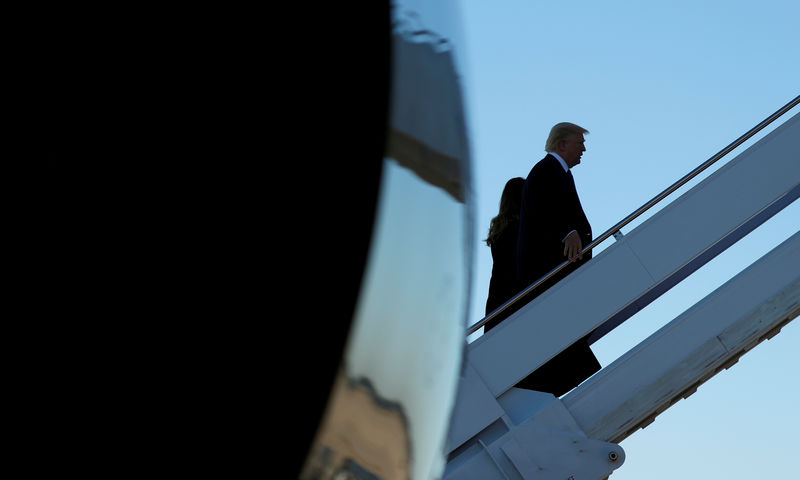
The Trump administration will keep for now an Obama-era rule that helped halt a wave of U.S. corporations moving abroad via tax-driven corporate inversion deals, it said on Wednesday, but added that it expected tax reform to obviate the rule.
President Donald Trump ordered a review almost six months ago of tax rules from the final months of the Obama administration, including ones to discourage companies from redomiciling abroad for tax reasons.
"Treasury plans to retain the distribution requirements under Section 385 pending enactment of tax reform," the department said in a statement, adding "these regulations are necessary to safeguard against earnings stripping."
It also said it planned to revoke and streamline some related documentation rules.
A 2011-2015 wave of inversion deals prompted Treasury to take a series of actions that culminated in an April 2016 rule release and the collapse of a $160-billion deal between U.S. drugmaker Pfizer Inc (N:PFE) and Ireland’s Allergan Plc (N:AGN), which would have been the largest inversion ever.
Tax inversions occur when a U.S. company is acquired by a smaller foreign business from a low-tax country and adopts its domicile to reduce the combined firm’s overall U.S. tax burden.
The Section 385 rule was part of Obama's anti-inversion effort and was finalized a year ago. It was meant to combat a corporate tax-reduction technique known as earnings stripping.
Earnings stripping occurs when the U.S. subsidiary of a newly inverted company loads up on debt and avoids taxes on its domestic profits by sending them overseas to the foreign parent in the form of tax-deductible interest payments.
The Obama rule reclassified some forms of debt as equity, changing tax-exempt interest payments into taxable dividends and making earnings stripping strategies more difficult to pursue.
The Organization for International Investment (OFII), a Washington lobbying group for foreign-based companies with U.S. operations, praised the documentation portion of Treasury's latest move and criticized the retention of the rest of the Section 385 rule.
"Unfortunately, in perpetuating an unsubstantiated premise of the Obama administration, Treasury has decided to keep part of these discriminatory regulations," the group said.
Companies that have inverted, OFII said in a statement, "are not overleveraged, their debt levels have remained largely flat and their interest expense has declined while their investments into America’s economy have grown."
The Treasury Department said it expected a Republican proposal to overhaul the tax code would eliminate the need for anti-inversion rules. The proposal would sharply cut the corporate tax rate and end taxation of multinationals' foreign profits.

No comments:
Post a Comment